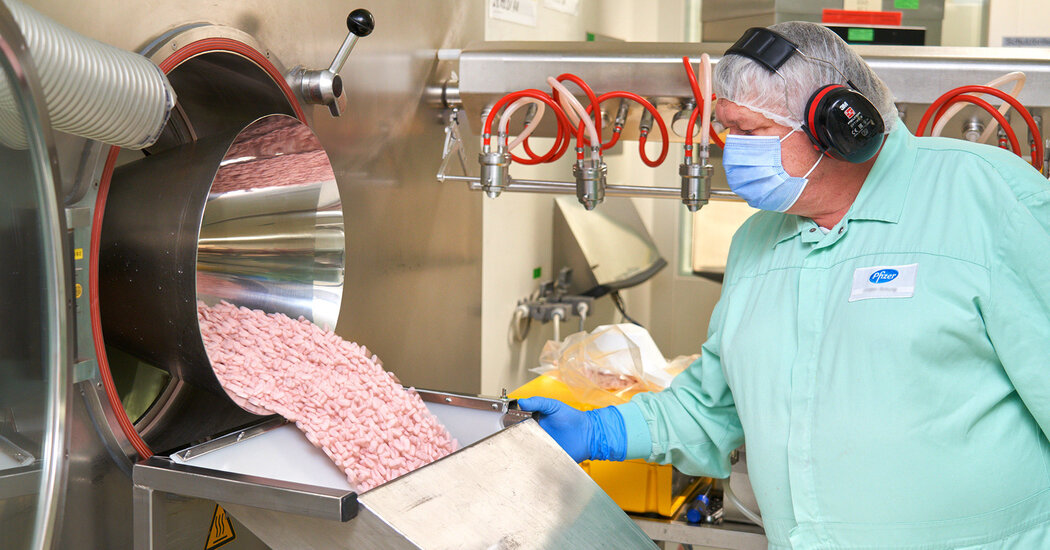Pfizer has applied to the Food and Drug Administration to authorize its antiviral pill to treat unvaccinated people with Covid-19 who are at high risk of becoming severely ill, the company said on Tuesday.
The drug, which will be sold under the brand name Paxlovid, could become available within weeks if authorization is granted. It is meant to be dispensed by pharmacies and taken at home.
Paxlovid is the second antiviral pill to show effectiveness against Covid, in a new class of treatments for the disease that are expected to reach far more patients than other drugs that are typically given by infusion.
In a key clinical trial, Paxlovid was found to sharply reduce the risk of hospitalization or death when given to high-risk unvaccinated volunteers soon after they started showing symptoms. It appears to be more effective than a similar offering from Merck, known as molnupiravir, that could be authorized as soon as early December.
Both pills are geared toward older people or people who have obesity or medical conditions that put them at elevated risk for getting severely ill from Covid.
A spokesman for Pfizer, Kit Longley, said that for now, the company is seeking authorization for its pill to be given only to unvaccinated people, but the company might submit amendments to that provision later, depending on the data from clinical trials.
Merck, which applied for authorization for molnupiravir last month, said it would be up to the F.D.A. to decide whether to authorize its pill for use in vaccinated people in addition to unvaccinated people.
The F.D.A. has not yet said whether it would convene a meeting of expert advisers to recommend whether to authorize Pfizer’s treatment. A panel of experts that advises the agency on antimicrobial drugs is scheduled to meet at the end of this month to discuss Merck’s drug.
Supplies of Pfizer’s treatment, which is taken as a regimen of 30 pills over five days, will be very limited at first. Pfizer said it could produce enough of the pills by the end of the year to treat 180,000 people. The company expects to expand manufacturing to produce at least 50 million treatment courses next year, including 21 million or more by the end of June.
Australia and Britain have already locked up some of those supplies, and the United States plans to buy about 10 million courses of treatment, according to people familiar with the agreement.
Pfizer said on Tuesday that it had reached an agreement to allow other manufacturers to make and sell the pill inexpensively for use in 95 developing countries.
Pfizer’s drug is designed to stop the coronavirus from replicating by blocking the activity of a key enzyme that the coronavirus uses to replicate itself inside cells. Merck’s pill works differently, by inserting errors into the virus’s genetic code, a mechanism that has raised concerns among some scientists that Merck’s drug could trigger genetic mutations that cause reproductive harm. That difference could give Pfizer’s pill an advantage among doctors and patients, because it does not carry the same safety concerns as the Merck pill.
